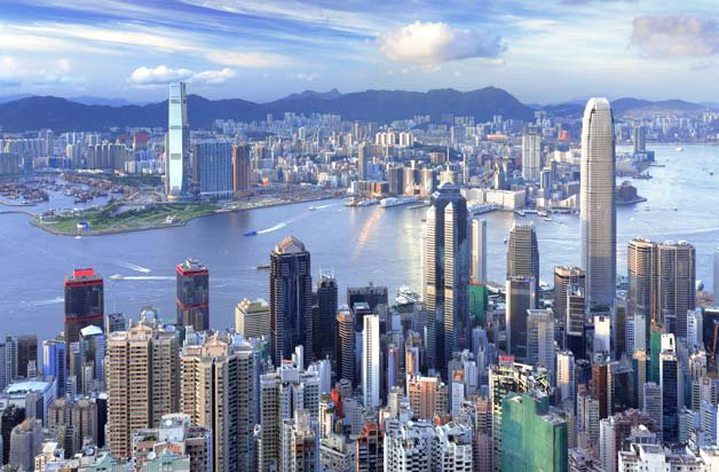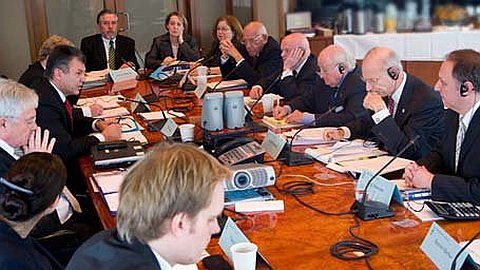Excess Supply Hurting Hong Kong Hotels

GLOBAL REPORT—Though barriers to entry remain high in Hong Kong, some experts think an influx in supply is posing a threat to the market’s traditionally stable base of demand.
The risks were exposed in great detail in a recent study from the School of Hotel & Tourism Management at the Hong Kong Polytechnic University, which found that demand forecasts indicate a significant shortfall in likely booking when compared to rooms available.
In the report, researchers estimated the annual optimal room capacity for Hong Kong hotels will increase from the 46,577 in 2010 to 50,584 in 2013. Comparing these figures with the actual numbers of rooms available, they concluded that “the industry will experience serious overcapacity” because of a discrepancy between the actual number of rooms available and the optimal number of rooms.
The result is faltering pricing power and an overall drag on performance, the report concludes.
Data from STR Global, sister company of Hotel News Now, points to that hypothesis.
“If you look at it from the middle of June last year, you had almost a 5% increase in supply, which they haven’t seen in the last two years,” said Naureen Ahmed, manager of marketing and analysis for the London-based data firm. “At around the same time you had that rate drop.”
Amid that supply increase, average daily rate was down 2.9% in Chinese yuan during the first half of 2013. Revenue per available room was down 3.5%. Occupancy, though down 0.6% through June, still was relatively high in absolute terms at 83.1%, according to STR Global.
STR Global counts six projects in the total active pipeline, and 378 rooms under construction.
“Hong Kong has seen an increase in supply—the largest on record in 2013—and further strong growth (in supply anticipated for) 2014. In addition to hotels, guesthouses and serviced apartments, which are not captured in official statistics, add further pressure on the market,” Daniel Voellm, managing director of HVS Hong Kong, wrote in an email.
“Particularly independent hotels without a strong distribution system are affected and engage in value-based pricing to maintain high occupancy levels,” he added. “Furthermore, new hotels are added in fringe locations or submarkets at a distance from core business districts, decompressing the market and affecting operators ability to yield. Hotels in those fringe locations are also often positioned at a lower price point, which has as a negative impact on market-wide average rates, although hotels in core areas might not be directly impacted.”
A different take
Not everyone agrees with the dim prospects.
Gloria Chang, director at Horwath HTL’s Hong Kong practice, does not think the market is at risk for oversupply. The cost of land makes new development in the downtown core difficult to come by, she wrote in an email. And most new development in those fringe locations and submarkets targets a different customer base: price-sensitive consumers and groups/tours, she said.
If anything, Hong Kong needs more hotels, Chang said. There is a dearth of supply in the central business district for corporate and leisure guests, for instance.
Many hotel companies are keen to develop their presence there.
“We see no evidence of oversupply in the market. Hotels do not open on a regular basis in Hong Kong and land, especially in Hong Kong island, is very hard to come by, so the issue of oversupply really is not an issue for Hong Kong,” said Lawrence Ng, VP sales and marketing China for Marriott International.
“Jumeirah Group is very interested in expanding its presence in Asia-Pacific, and Hong Kong is among the top destinations for our future expansion. We are already pleased with high brand awareness in Hong Kong and welcome a growing number of travelers from Hong Kong in our hotels in Dubai and globally,” said Piers Schreiber, VP of corporate communications & public affairs, Jumeirah Group.
While he recognized Hong Kong “boasts one of the most developed hotel markets” in the world, Schreiber said Jumeirah’s executives “believe that Jumeirah can make an entrance once (they) identify the right opportunity.”
The company has eight projects under development in the Asia-Pacific region, including five in China.
In Hong Kong, one need only point to the market’s continually strong occupancy numbers as proof of its resiliency.
Even Ahmed from STR Global acknowledged this base. “The demand is still definitely there. Hong Kong is one of those gateway cities,” she said.
Occupancy has not dipped below 70% on an annualized basis during the past five-plus years, according to STR Global data. The recent peak came in 2011 at 85.5%. The trough came in 2009 at 73.3%.
“Hong Kong’s occupancy is already very strong,” Chang said. “On year average, the High Tariff A hotel’s occupancy maintains at 85% while High Tariff B and medium hotels even reach at over 90%. The ramp-up period for a newly opened hotel in Hong Kong to reach stabilized level is very short, just one to two years.”
Long-term growth in question
Voellm of HVS warned that the feeders of that demand are cooling off.
“Visitor arrival figures point to a slowdown, particularly from traditional core markets,” he said. “China continues to grow; however, it is questionable whether targeting more and more mainland Chinese tourists is the answer to (Hong Kong’s) ills.”
Hong Kong’s promotional campaigns do not target long-haul markets that are performing well, Voellm added. As a result, the market has grown more dependent on visitors from mainland China, which itself is slowing down.
“Going forward, there are few stimuli for visitors to go to Hong Kong as the global economy remains lackluster and China is somewhat cooling down,” he said. “Notably, there is a distinct change in the quality of demand—away from long-haul, high-paying travelers to regional, value-oriented ones. This further inhibits rate growth.”





